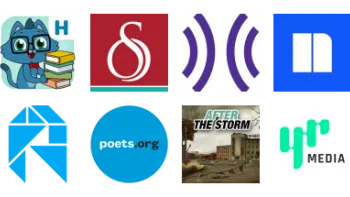Take a look inside 10 images
Readorium
Pros: Varied activities and adaptive instruction help students comprehend scientific texts.
Cons: Parts of the platform are showing their age, and it can get repetitive; big focus on earning (and spending) money and tokens.
Bottom Line: There's not much out there that focuses specifically on reading science texts, so if your students can get past the dated design, this could be a handy tool to turn to.
Readorium would be a useful supplement to classrooms, especially elementary classrooms, looking to build nonfiction reading comprehension skills while growing science knowledge and understanding. This is an important part of learning standards, including the Common Core, but it isn't a huge focus in edtech.
It can be used as a whole-class tool where students read the same book through the platform and then discuss it as a group -- and since the platform adjusts to each student's reading level, every student in the class can read the same book, at their level, and then discuss it together (without anyone feeling singled out).
Teachers might also have students work through the materials individually, building up, for example, to a research project focused on science topics and concepts they encounter in Readorium. Given the robust tutorials and guidance, students should be fine working through the materials at their own pace, and teachers can follow along through the dashboard. Students could also work through the readings and activities at home. This could be especially helpful for students who need some extra practice but have parents who speak a different language at home.
Readorium is a website offering a virtual science library with books and activities that focus on building students' reading comprehension and science knowledge. There's a decent number of books and articles available, and all feature adjustable reading levels. The books cover a wide range of nonfiction science topics, and feature images, key terms, and questions. The entire experience is kicked off with introductory videos that cover the different parts of books and how students can navigate and make the most out of it (like the table of contents and bolded words). Students are then led through the first book with the assistance of a reading buddy -- essentially a small video of a young person on the left side of the screen. The reading buddy guides students through each text. Students are then left on their own to read, answer questions (multiple choice, true/false, word completion, etc.). If students make too many mistakes, they get hints from their reading buddy to point them in the right direction. After a certain number of errors, the reading level is dropped. The content, questions, and graphics remain the same, however, so students shouldn't feel singled out or shamed. Student progress is recorded in a dashboard for teachers, and students earn money and tokens that can be spent on educational games or science videos, or to access additional reading content.
Overall, it's a well thought out platform for reading and science with a grounding in sound pedagogy. Students get ample support for reading via the adjustable reading levels and the reading buddies (who are refreshingly diverse). There's also quite a lot of engagement with each text, so that students are truly challenged to comprehend what they're reading. This engagement extends to tips and tricks on not just reading closely but also navigating books in general (e.g., looking at titles, chapter titles, authors, etc.).
However, Readorium is showing its age. The games are particularly dated, but the video content also isn't up to modern standards, and is pretty corny. Reading the books and completing the questions might get repetitive as well, so teachers should encourage students to try out some of the other activities. There's also quite a bit of focus on earning money and tokens that are meant to motivate students. The videos, games, and texts students can spend tokens on aren't necessarily that desirable, but they are something different. Some teachers might also object to the lack of focus on intrinsic motivation and on making reading itself the reward.


















